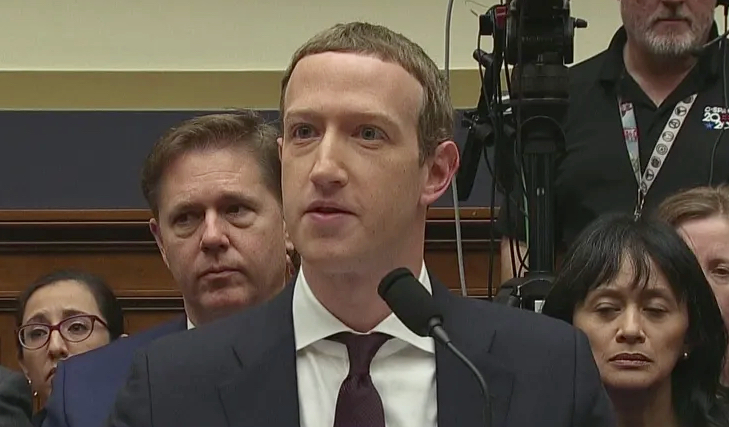- Private election administration funding, or “Zuck bucks,” influenced the outcome of some races in the 2020 election in North Carolina
- A new organization called the U.S. Alliance for Election Excellence seeks to influence county elections boards toward “progressive changes to election laws and procedures”
- The General Assembly should ban both private election administration funding and the program designed to make “progressive changes” in our election procedures
While a new General Assembly will likely consider bringing back a bill banning private election administration funding, such as the notorious “Zuck bucks”, progressives have launched a new program designed to influence how local officials conduct elections.
Zuck Bucks 1.0 helped Democrats in 2020
“Zuck bucks” is shorthand for the private funding of election administration in the 2020 election by the progressive Center for Tech and Civic Life (CTCL). Funded primarily by a donation from Mark Zuckerberg and his wife, Priscilla Chan, CTCL spent hundreds of millions of dollars on the election.
As detailed in the John Locke Foundation’s review of the 2020 election (pages 63–73), CTCL gave over $7.2 million to the North Carolina State Board of Elections and 31 county elections boards.
Most of those county boards received less than one dollar per registered voter in the county. However, two of the most Democratic-leaning counties received much more. Orange County, home of the University of North Carolina at Chapel Hill, received $2.60 per voter from CTCL. Neighboring Durham County received an eye-popping $5.49 per voter.
CTCL claimed that its funding had no partisan intent, but evidence indicates that it benefited Democrats. For example, counties that received CTCL funding supported Joe Biden 51.1% to 48.9% of the two-party vote, while counties that did not receive it supported Donald Trump 52.3% to 47.7%.
Counties that received Zuck bucks had a slightly larger increase in turnout from 2016 to 2020 compared to counties that did not, but that increase disproportionately benefited Democratic candidates. For example, as seen in following table, there was virtually no difference between counties that accepted private election funding and those that did not in the percentage increase in votes from 2016 to 2020 for the Republican candidate for attorney general. On the other hand, the percentage increase in votes for the Democratic attorney general candidate was five points higher in counties that accepted private funding than in those that did not.
Counties funded by Center for Tech and Civic Life and voter turnout change for Democratic and Republican attorney general candidates from 2016 to the 2020 elections

A New Threat Emerges
The 2022 election did not see the massive influx of private funding for election administration that influenced the outcome of the 2020 election. The threat of progressives controlling election administration has not diminished, however. The CTCL launched the U.S. Alliance for Election Excellence in 2022 to create “a set of common values and standards” of elections. The Alliance announced that ten jurisdictions comprise the initial cohort of their program, including Brunswick and Forsyth counties in North Carolina.
Documents revealed through public records requests by the Honest Elections Project (HEP) and reviewed by HEP and Locke indicate that the CTCL actually designed the Alliance to “systematically influence every aspect of election administration in target offices and push progressive voting policies.”
The Alliance’s model is to provide “scholarships” to members that they can redeem for services from the Alliance. Those services include training, legal and political advice, and public-relations guidance. In return, members must give the Alliance information on their inner workings and devise an “improvement plan” with the Alliance to alter how they operate. Members must also provide in-kind contributions, at taxpayer expense, to the Alliance in the form of helping it develop its programming.
The left-wing Democracy North Carolina praised the Alliance’s work in North Carolina. They even said the quiet part out loud by linking the Alliance’s activities to their own “push for progressive changes to election laws and procedures.” Some of those changes include weakening the witness requirement for mail ballots, requiring election officials to accept all mail ballots up to nine days after election day, and creating automatic voter registration.
Stop Zuck Bucks 2.0
The General Assembly passed a bill banning Zuck bucks during the 2021 session. Senate Bill 725 banned elections boards from accepting “private monetary donations, directly or indirectly, for conducting elections or employing individuals on a temporary basis.”
Unfortunately, but predictably, Gov. Roy Cooper vetoed the bill.
The 2022 “red wave” election gave Republicans a veto-proof supermajority in the North Carolina Senate. They are also only one seat short of a supermajority in the House. So we will almost certainly see another bill banning private election administration funding advance through the General Assembly this year.
While the ban on elections boards accepting private funding “directly or indirectly” in the 2021 bill is probably sufficient to cover the Alliance’s system of “scholar” funding, that bill was limited to banning private funding for “conducting elections” or “employing individuals.” A new bill prohibiting private election administration funding schemes may need additional language to address the Alliance’s activities.
For example, North Carolina law broadly outlaws providing anyone “any money, property or other thing of value whatsoever” in exchange for that person voting.
Such a wide-ranging ban may be needed to protect our election administration system from groups seeking, one way or another, to make “progressive changes” to how we conduct our elections in North Carolina.


